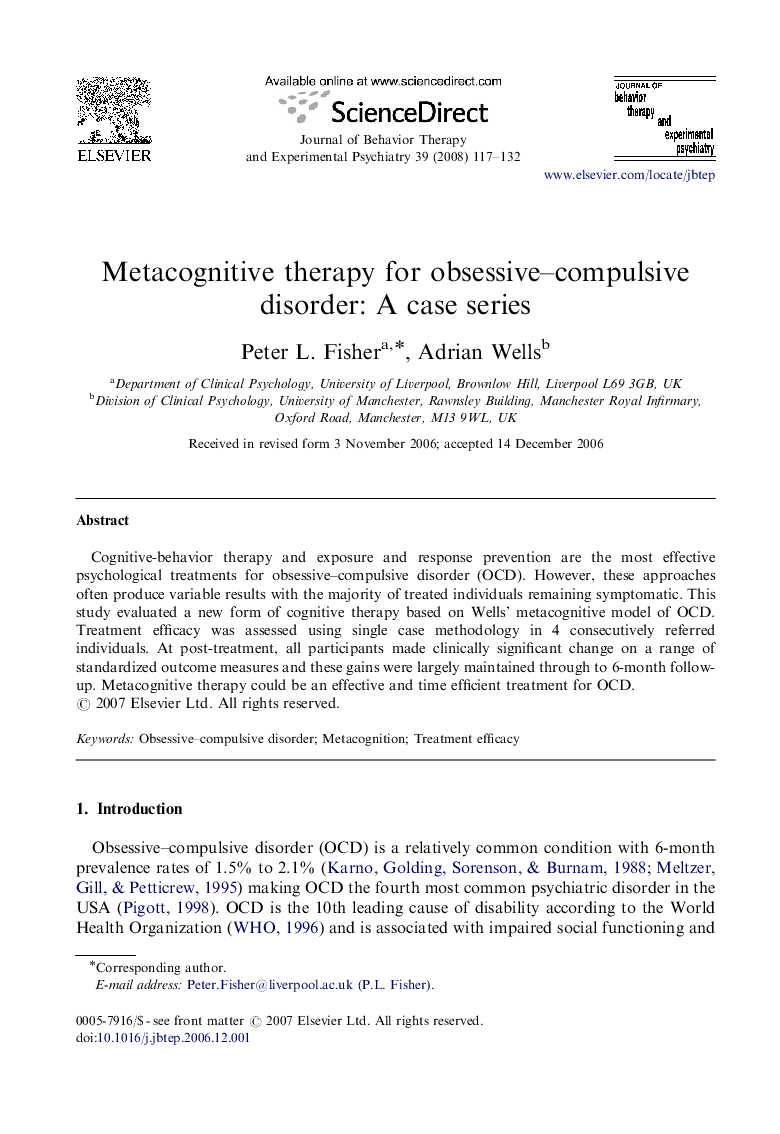| Article ID | Journal | Published Year | Pages | File Type |
|---|---|---|---|---|
| 10448317 | Journal of Behavior Therapy and Experimental Psychiatry | 2008 | 16 Pages |
Abstract
Cognitive-behavior therapy and exposure and response prevention are the most effective psychological treatments for obsessive-compulsive disorder (OCD). However, these approaches often produce variable results with the majority of treated individuals remaining symptomatic. This study evaluated a new form of cognitive therapy based on Wells' metacognitive model of OCD. Treatment efficacy was assessed using single case methodology in 4 consecutively referred individuals. At post-treatment, all participants made clinically significant change on a range of standardized outcome measures and these gains were largely maintained through to 6-month follow-up. Metacognitive therapy could be an effective and time efficient treatment for OCD.
Related Topics
Health Sciences
Medicine and Dentistry
Psychiatry and Mental Health
Authors
Peter L. Fisher, Adrian Wells,
